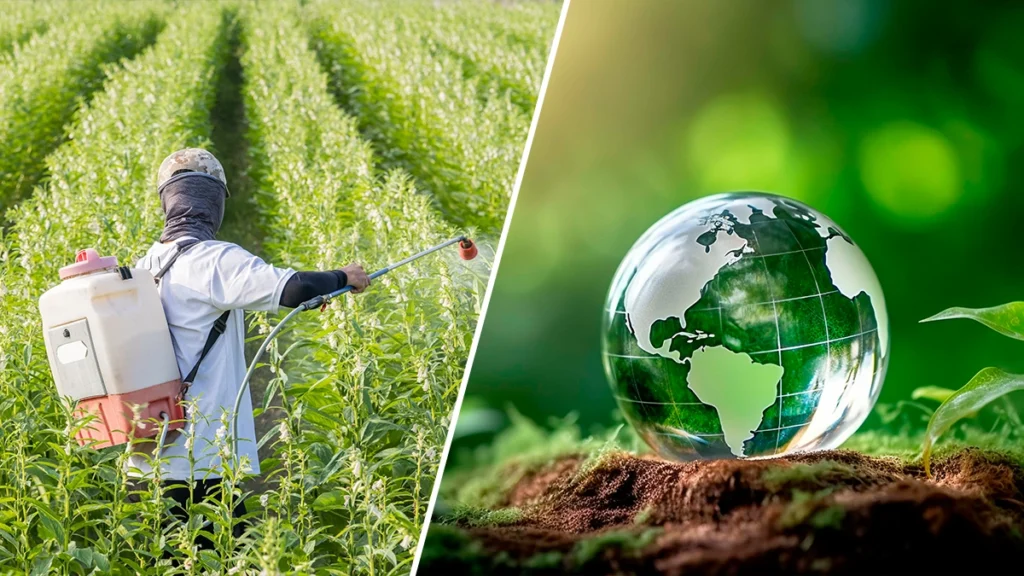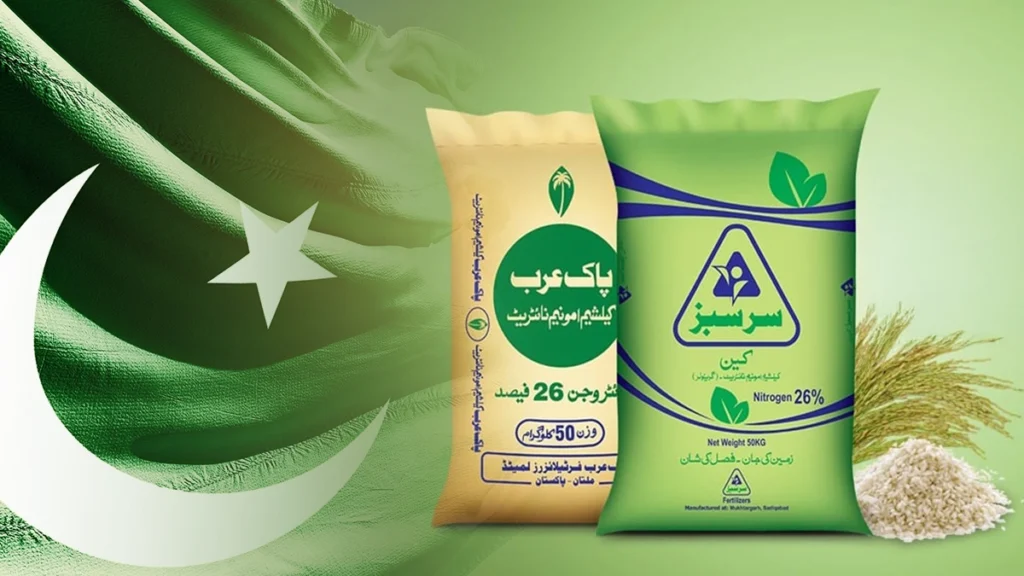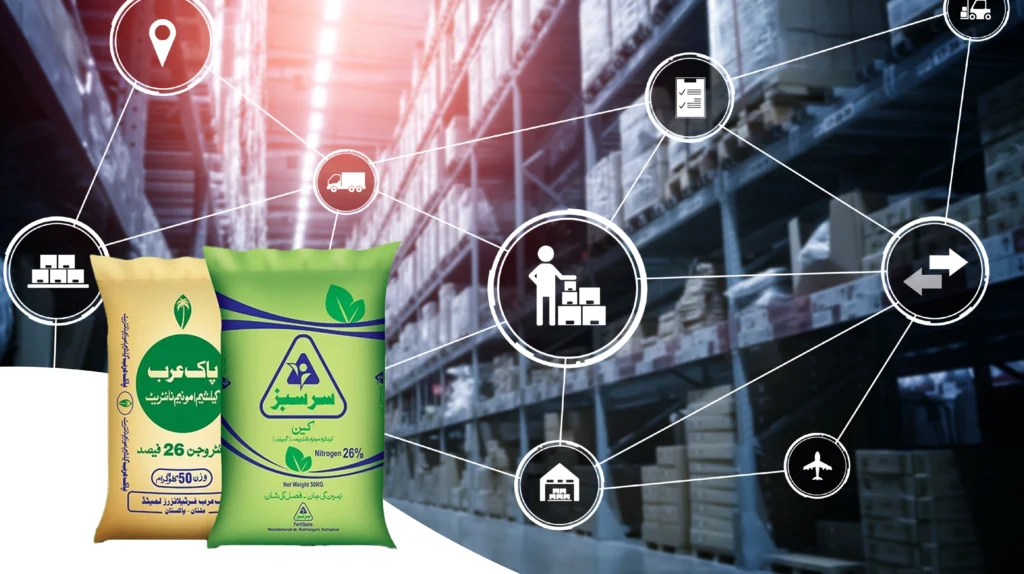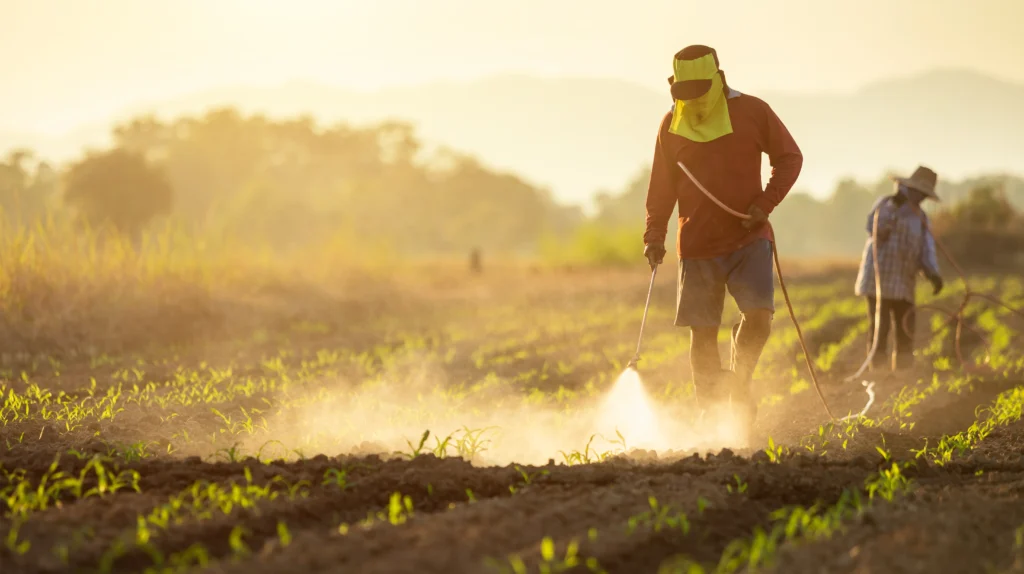DAP fertilizer is an important fertilizer for farmers in Pakistan. It has phosphorus and nitrogen, which help crops grow better and give higher yields.
The DAP Fertilizer Price in Pakistan changes due to factors like import costs, government support, and market demand.
Similarly, farmers also keep an eye on the Current Rice Price in Pakistan to manage their overall agricultural costs effectively.
Below is the latest price update for different types and brands of DAP fertilizer in Pakistan.
Knowing the current DAP price empowers farmers to make informed decisions for sustainable crop production.
Table of Contents
ToggleDAP Price in Pakistan
As of 2025, the price of Di-Ammonium Phosphate (DAP) fertilizer in Pakistan ranges from PKR 11,250 to PKR 11,750 per 50 kg bag, depending on the brand. Major suppliers like FFC, PakArab, and Sarsabz offer DAP at similar rates across the country.
These prices can vary due to factors like changes in import costs, government subsidies, and global market conditions. DAP remains an essential fertilizer for increasing crop yield, especially for major crops like wheat and sugarcane.
DAP Fertilizer Price in Pakistan
The price of DAP fertilizer in Pakistan is influenced by several factors, including global market trends, import costs, and government policies. Fluctuations in supply and demand, along with changes in international pricing, can cause frequent variations in the local market.
As a key input for crops like wheat and sugarcane, any shifts in the cost of DAP can significantly impact farmers’ expenses and overall agricultural productivity.
DAP Fertilizer 50 Kg Price in Pakistan
Here is the table for DAP Fertilizer Price in Pakistan:
| Fertilizer Type | Price (PKR per 50 KG Bag) | Brand |
|---|---|---|
| DAP | 11,250 – 11,500 | FFC, PakArab |
| DAP | 11,450 | Sarsabz |
| DAP (Efert Zorawar) | 12,175 | Efert, Agritrade Zorawar |
Prices may vary based on market conditions, location, and supplier rates.
A 50 kg bag of DAP fertilizer is the standard packaging available in the market. The price of a DAP 50 kg bag can differ depending on the brand and location. Farmers should compare prices from different suppliers to get the best deal.
Sona DAP Price in Pakistan Today
Fertilizer Brand: Sona DAP
Packaging: 50 Kg Bag
Price Range (PKR): 11,250 – 11,650
Key Benefits Sona: Provides nitrogen & phosphorus, boosts wheat & sugarcane growth
Prices may change due to global market trends, local demand, and government policies. Farmers should stay updated to make informed decisions.
Sona DAP is one of the leading brands of Di-Ammonium Phosphate (DAP) fertilizer in Pakistan, currently priced between PKR 11,250 and PKR 11,500 per 50 kg bag as of February 2025.
This fertilizer is highly regarded for its balanced nutrient profile, delivering essential nitrogen and phosphorus that significantly enhance crop yields.
Farmers particularly favor Sona DAP for its effectiveness in boosting the growth of key crops such as wheat and sugarcane, making it an indispensable tool in modern agriculture.
The pricing of Sona DAP can fluctuate due to various factors, including global market trends, local demand, and government agricultural policies.
As the agricultural landscape evolves, staying informed about these changes is crucial for farmers aiming to maximize their productivity and return on investment.
Sona DAP Price With Diffrent Nutrient
Type: Sona DAP
Price (PKR per 50 KG Bag): 11,250 – 11,500
Brand: Sona
Nutrient Composition: Balanced Nitrogen & Phosphorus
Usage: Widely used for wheat, sugarcane, and other crops
Type: Sona DAP
Price (PKR per 50 KG Bag): 11,450
Brand: Sona
Nutrient Composition: High Nitrogen content
Usage: Preferred for enhancing crop yield
Type: Sona DAP
Price (PKR per 50 KG Bag): 11,300
Brand: Sona
Nutrient Composition: Nutrient-rich formula
Usage: Effective for soil fertility
Type: Sona DAP
Price (PKR per 50 KG Bag): 11,400
Brand: Sona
Nutrient Composition: Optimal for early growth
Usage: Supports healthy root development
Prices may vary based on market conditions, location, and supplier rates.
Engro DAP Price in Pakistan Today
Here is the table format for the given price details:
| Fertilizer Brand | Minimum Price (PKR) | Maximum Price (PKR) |
|---|---|---|
| Engro DAP | Rs. 11,200 | Rs. 11,600 |
Engro DAP fertilizer is another popular choice for Pakistani farmers. Engro produces high-quality DAP that helps improve soil fertility. The price of Engro DAP may vary due to market conditions and availability.
FFC DAP Price in Pakistan Today
| Fertilizer Brand | Minimum Price (PKR) | Maximum Price (PKR) |
|---|---|---|
| FFC DAP | Rs. 11,500 | Rs. 11,900 |
FFC (Fauji Fertilizer Company) DAP is a well-known fertilizer brand in Pakistan. The price of FFC DAP changes based on market demand, production costs, and distribution factors.
Farmers rely on FFC DAP for its consistent quality and effectiveness in boosting crop production.
Here is the table for Sona DAP Fertilizer Price with different nutrient & Usage in Pakistan:
DAP Khad Price in Pakistan Today
| Type | Price (PKR per 50 KG Bag) | Brand | Location Influence |
|---|---|---|---|
| DAP Khad | 11,250 – 11,750 | Various Brands | Prices vary by local markets |
| DAP Khad | 11,300 | Sona | Popular in central regions |
| DAP Khad | 11,450 | PakArab | Common in southern areas |
| DAP Khad | 11,500 | FFC | Available in northern provinces |
Prices may change based on market demand, supplier rates, and regional factors.
In the local markets of Pakistan, the price of DAP khad (fertilizer) shows notable variations based on location and supply dynamics. As of 2025, you can expect prices to range from PKR 11,250 to PKR 11,750 per 50 kg bag.
These fluctuations are influenced by several factors, including global market trends, local demand, and the cost of imports.
Farmers are encouraged to stay informed about these price changes, as they can significantly impact agricultural budgeting and crop yield outcomes.
For the latest and most accurate pricing in your area, consulting local suppliers and agricultural market reports is essential.
For more insights into agricultural pricing, check out our blog on Rice Price in Pakistan.
Urea Price in Pakistan
| Urea Khad | Minimum Price (PKR) | Maximum Price (PKR) |
|---|---|---|
| Sarsabz Urea | Rs. 4,450 | Rs. 4,700 |
| BS/PFL Urea | Rs. 4,500 | Rs. 4,650 |
| Babar Sher Urea | Rs. 4,300 | Rs. 4,500 |
| Imported Urea | Rs. 4,400 | Rs. 4,600 |
Urea fertilizer is another key fertilizer used in Pakistan. It is generally more affordable than DAP but provides only nitrogen.
Many farmers use a combination of Urea and DAP to ensure a balanced nutrient supply for crops. The price of Urea fertilizer fluctuates based on production costs and government regulations.
Stay informed about DAP khad prices to optimize your agricultural investments and enhance crop yields.
Factors Affecting DAP Prices
Several factors affect DAP Fertilizer Price in Pakistan, including global market trends, import costs, and government policies. Seasonal demand, exchange rates, and transportation costs also impact price fluctuations.
1. Global Trends

The price of imported DAP fertilizer in Pakistan is heavily influenced by global market trends. Fluctuations in supply and demand worldwide can lead to higher local prices, especially if major producing countries face production cuts due to bad weather.
Additionally, geopolitical events that disrupt trade routes can create further price volatility. These factors not only affect availability but also lead to uncertainty in future pricing.
Understanding these influences is crucial for farmers and businesses to make informed purchasing decisions.
2. Seasonal Demand

Demand for DAP fertilizer often increases sharply during crop sowing seasons, leading to higher prices. Farmers typically rush to purchase fertilizers during these times, putting pressure on supply chains.
The timing of these demand spikes can differ based on regional farming practices, making it essential for suppliers to manage their inventory effectively to prevent shortages.
As a result, price hikes during peak demand periods can significantly impact farmers’ operational costs, affecting their overall productivity and profitability.
3. Government Influence

Government policies significantly affect the pricing of fertilizers like DAP. Subsidies or restrictions on imports can change how much farmers pay.
For instance, when the government offers subsidies, it helps keep prices stable and makes fertilizers more affordable for farmers.
On the other hand, strict import regulations can reduce supply and cause prices to rise. Additionally, government efforts to support local production can also impact market pricing strategies, further influencing what farmers pay for fertilizers.
4. Exchange Rates

The value of the Pakistani Rupee compared to other currencies greatly influences DAP fertilizer prices. When the Rupee weakens, imports become more expensive, leading to higher costs for local buyers.
As a result, changes in exchange rates can cause unpredictability in fertilizer pricing, often resulting in increased prices during times of currency depreciation. Similarly, fluctuations in exchange rates also impact the Tractor Price in Pakistan, making it essential for farmers to plan their investments carefully.
Furthermore, importers may change their pricing strategies based on currency trends to protect their profits, making it crucial for farmers to stay informed about these fluctuations.
5. Transportation Costs

Changes in fuel prices and logistics significantly affect transportation costs, which ultimately influence the final price of fertilizers in local markets.
When fuel prices rise, the cost of moving DAP fertilizer from ports to distribution centers increases, leading to higher prices for consumers.
Additionally, infrastructure challenges, such as poor road conditions and congestion at ports, can cause delays and drive up transportation expenses even more.
These factors make it essential for suppliers to consider transportation costs when setting prices, as they can have a major impact on farmers’ overall expenses.
6. Supply Chain Disruptions

Natural disasters, political instability, and trade disputes can significantly disrupt supply chains, resulting in shortages and price increases. For example, a severe weather event might damage production facilities, reducing the supply of DAP fertilizer.
Similarly, political unrest or trade conflicts can hinder the transportation of goods, further limiting availability. These disruptions not only create challenges for suppliers but also lead to higher prices for farmers, making it essential for them to stay aware of these potential risks in the market.
7. Agricultural Practices

Changes in farming techniques and crop choices can significantly affect the demand for DAP fertilizer. As farmers embrace new practices, their fertilizer requirements may change, which in turn impacts overall demand.
For example, if farmers switch to more nutrient-intensive crops or adopt more efficient farming methods, they may need different types or amounts of fertilizer.
Understanding these shifts is important for suppliers and farmers alike, as they can help predict future demand and adjust their strategies accordingly.
These factors play a crucial role in determining DAP Fertilizer Price in Pakistan, making it essential for farmers to stay updated.
How to handle all these factors
Here is a real life example that help you hot to overcome all these factors. Ahmed Ali is a wheat farmer in Punjab, Pakistan. In 2025, he struggled because the DAP Fertilizer Price in Pakistan went up due to higher import costs.
He needed DAP for his wheat crop, but the high price made it hard to buy enough. His neighbor, Rashid Khan, had a smart plan. Rashid checked the Wheat Price in Pakistan and DAP prices regularly.
He bought fertilizer when prices were low and used government subsidies to save money. Ahmed followed his example and also used urea to reduce costs.
In the end, his crops grew well, and he made a good profit. This shows that farmers can handle price changes by planning wisely and staying informed.
Importance of DAP in Crop Production
Diammonium phosphate (DAP) is a crucial fertilizer in crop production due to its rich nutrient content, primarily nitrogen and phosphorus. Here are some key points highlighting its importance:
Nutrient Supply
DAP fertilizer supplies essential nutrients that help plants grow strong and healthy. Nitrogen is crucial for promoting leafy growth, while phosphorus is important for root development and flowering.
Together, these nutrients are vital for improving both the yield and quality of crops. By ensuring that plants receive the right nutrients, farmers can achieve better harvests and maximize their productivity.
Soil Fertility
Soil fertility is vital for healthy plant growth and good harvests. DAP fertilizer is an excellent source of essential nutrients like phosphorus (P) and nitrogen (N). Its high solubility allows it to dissolve quickly in the soil, releasing plant-available phosphate and ammonium that plants can easily absorb.
Additionally, the alkaline pH created around the dissolving granules improves soil quality. By using DAP fertilizer, farmers can enhance soil fertility, making it easier for plants to take up nutrients and increasing crop yields.
Crop Performance
Studies have shown that DAP fertilizer greatly improves the growth of crops such as wheat, corn, and rice. It helps seeds germinate faster and makes plants more resistant to diseases.
As a result, farmers can expect higher and more consistent yields. By using DAP, growers can enhance their crop performance and ensure a better harvest.
Economic Benefits
Using DAP fertilizer can result in higher crop yields, leading to more income for farmers. Improved productivity not only boosts individual earnings but also helps ensure food security and economic stability in farming communities.
By enhancing crop performance, DAP plays a key role in strengthening the overall economy of agricultural regions.
Sustainable Agriculture
When used correctly, DAP fertilizer can support sustainable farming practices. It helps improve crop rotation results and enhances soil health, which are essential for long-term agricultural sustainability.
By incorporating DAP into their practices, farmers can promote better growing conditions while protecting the environment for future generations.
How to Stay Updated on DAP Prices
To stay informed about DAP prices in Pakistan, it’s important to regularly check local market reports and reliable online agricultural platforms.
These resources provide real-time information on price fluctuations and market trends, helping farmers and buyers make informed decisions.
Additionally, subscribing to newsletters or joining agricultural forums can offer valuable insights and updates. By staying engaged with these sources, you can better navigate the market and plan your purchases effectively.
FAQ’s
What is the current price of DAP fertilizer in Pakistan?
The current price of DAP fertilizer ranges from PKR 10,560 to PKR 11,450 per 50kg bag
Why do DAP fertilizer prices fluctuate?
DAP prices fluctuate due to global phosphate price changes, local demand during planting, and supply chain issues.
How can farmers check the latest DAP prices?
Farmers can check the latest DAP prices through local market reports and online agricultural platforms.
Are there any government subsidies on DAP fertilizer?
Yes, the government of Pakistan provides subsidies on DAP fertilizer to reduce costs for farmers.
What is the importance of DAP fertilizer in agriculture?
DAP fertilizer is crucial for providing phosphorus and nitrogen, essential for enhancing crop yield and quality.
Conclusion
Staying informed about DAP prices is essential for farmers in Pakistan to manage their costs and enhance agricultural productivity. The price of Di-Ammonium Phosphate significantly impacts crop yields, especially for vital crops like wheat and sugarcane. Additionally, keeping track of the Wheat Price in Pakistan is crucial for farmers to plan their production and maximize profitability.
By understanding the factors affecting prices and utilizing reliable resources for updates, farmers can make informed decisions to optimize their investments and ensure sustainable crop production.
Empowering farmers with knowledge of DAP prices is key to maximizing crop yields and ensuring sustainable agriculture.




